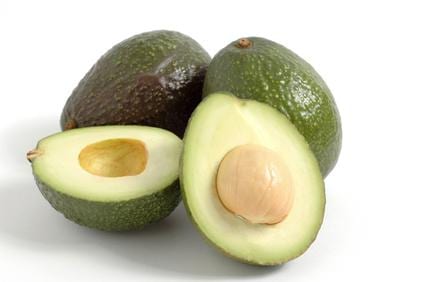Skin is crucial for an overall youthful and healthy look. Start from the inside to heal any skin blemishes and abrasions and to promote a beautiful clear look. Your diet can be a direct reflection of your general well-being. Maintain a healthy diet every day to maintain healthy skin.
What You Need
A smorgasbord of vitamins and nutrients work together to encourage skin cell development and keep your skin moist and glowing. According to a University of Washington pamphlet on healthy skin, vitamins A, C and E are important to the maintenance of healthy skin. According to the Health and Human Services Office of Women’s Health website, zinc is another critical component. Plenty of water in your diet is necessary to maintain glowing, healthy skin.
What Might Surprise You
As you strive toward a healthy diet, you may be keeping careful tabs on what you are eating, avoiding anything potentially unhealthy. In doing so, you may eliminate fat from your diet. However, your body, even your skin, needs fat to work properly and look its best. According to the University of Maryland Medical Center, a plump subcutaneous layer of fat under your skin keeps your skin from looking limp. It also protects your skin from cuts and bruises, keeping it healthy and blemish-free. Fat also delivers vitamins to their destinations.
Where to Get It
You can find vitamin A in many different food groups, including fruits, vegetables, proteins and dairy products. A balanced diet will help you get all the nutrients you need for healthy skin. Fruits and vegetables will bring vitamin C to your diet. Proteins such as beef, oysters and soybeans will give you zinc. Focus on a fruit-and-vegetable diet supplemented with protein to make sure you are getting everything you need.
Where Not to Get It
Talk with a doctor before supplementing with pills. Vitamin C is water-soluble, and any unused portions will be flushed out of your system. However, vitamin A is fat-soluble. It is possible to get too much vitamin A, which can be toxic. Don’t take more than the recommended amount on a multivitamin bottle unless your doctor gives direct instruction otherwise.
How Much Do You Need
To make sure you get the proper balance of A and C, eat three servings of bright vegetables and fruits per day. Three servings of protein, particularly beef or soy, and dairy products per day will also ensure that you get enough zinc and vitamin A per day. Drink water throughout the day to stay hydrated. You may not need to add fats into your diet; just make sure the ones you use are heart friendly, such as avocados and vegetable oils.
Photo Credit
- Avocados image by William Berry from Fotolia.com





